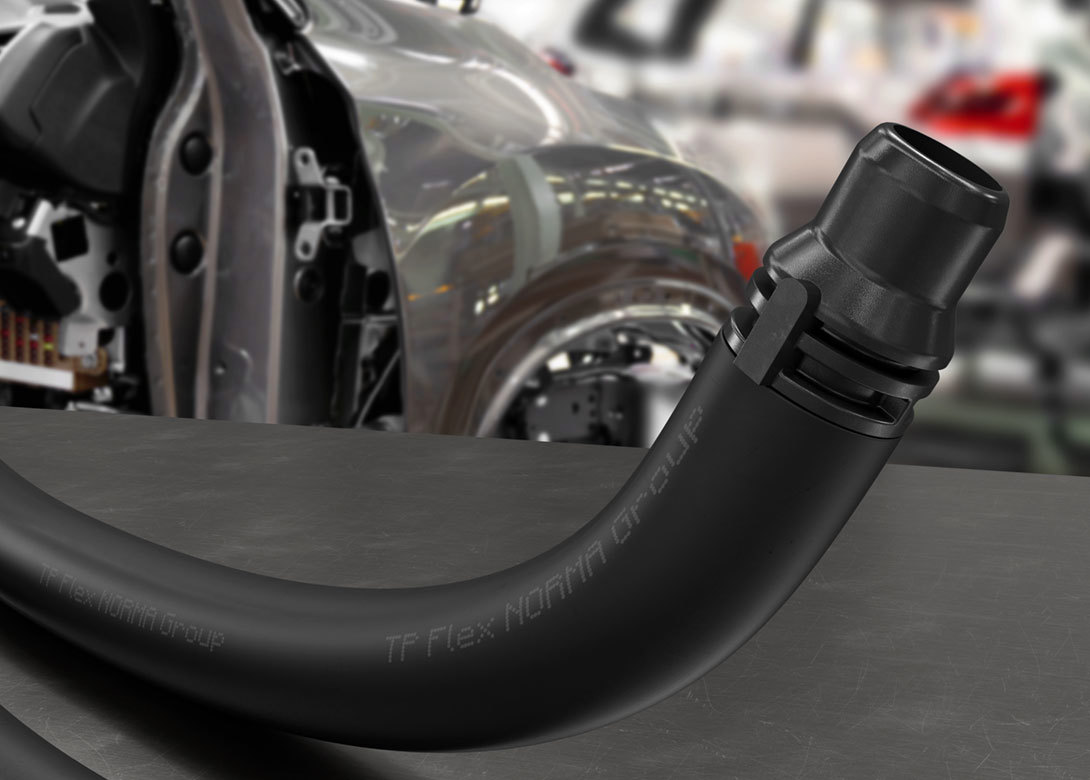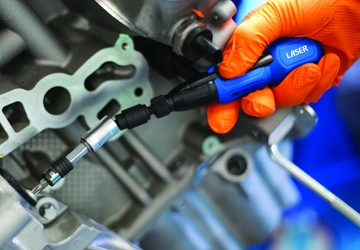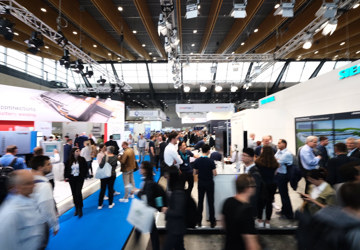

NORMA Group has developed a new smooth tube made of thermoplastic elastomer. The TP Flex is light, flexible and reduces the pressure drop of the fluid that flows through it making it ideal for use in the cooling systems of electric vehicles and hybrids.
Long and complex line systems are used for thermal management in electric vehicles. It is a particular challenge to keep the pressure in the cooling circuit evenly high due to the many turns in narrow spaces. Traditionally a loss in pressure would be compensated for by using larger pumps or by increasing the tube diameter. Instead, the TP Flex can minimise the pressure loss solely by its design and material characteristics.
NORMA states that the TP Flex reduces pressure loss in tube bends by up to half when compared to corrugated plastic pipes. This is particularly relevant for cooling systems in electric vehicles because optimal temperature control has a considerable influence on the range of a battery.
“In the field of e-mobility, we are productively combining our many years of experience in joining technology for the automotive industry with our innovation and development expertise,” said Dr. Michael Schneider, CEO of NORMA Group. “With the TP Flex, we now offer a new efficient solution for temperature regulation systems of batteries in electric vehicles. In this way, we contribute to maintaining the capacity of the battery and influencing its service life in the best possible way.”
NORMA explains that the TP Flex saves around 75% weight compared to rubber hoses. This equates to weight savings of up to 5kg per vehicle. A lighter electric vehicle requires a less powerful drive, or offers a higher range with the same drive. The thermoplastic elastomer also allows for a more compact design with a smaller outer diameter than rubber hoses. This is advantageous for the limited installation space in battery powered vehicles and vehicles with two drives. The tube can be equipped with standard quick connectors, as well as with the eM Compact, which was specially developed for use in e-mobility applications.





